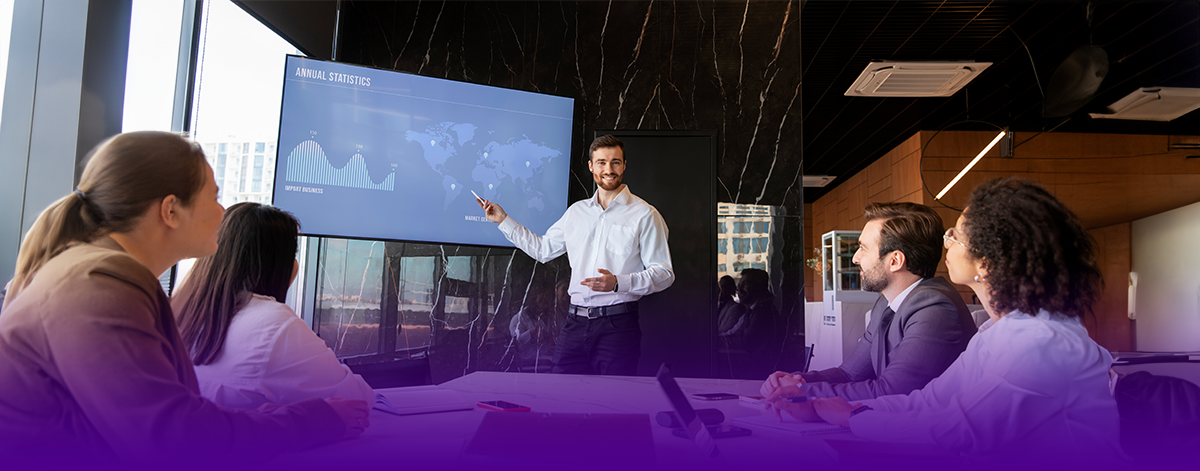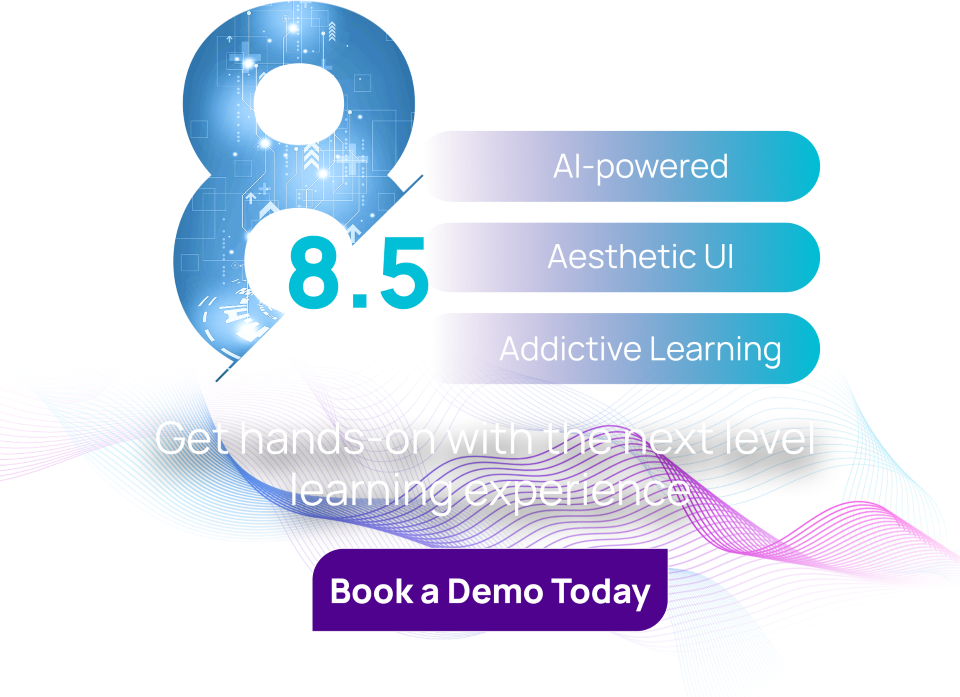
What Is an Extended Enterprise LMS and How It Empowers Partners and Customers
November 20, 2025
Cloud-Based Learning Management System: Transforming How Enterprises Learn
November 21, 2025Table of contents
- The Compliance Challenge in Regulated Industries
- What LMS Compliance Really Means
- Why LMS Compliance Matters More Than Ever
- What Makes a Compliance LMS Different?
- How LMS Compliance Transforms Real-World Outcomes
- Measuring the Impact of LMS Compliance
- The Future of Compliance Is Intelligent
- Closing Up: Turn Your Compliance into a Competitive Advantage
- Over To You!
- Other Articles
Ever wondered how leading organizations consistently manage to stay compliant year after year despite evolving regulations?
It’s not luck; it’s structure, discipline, and the right technology working quietly but surely behind the scenes.
For businesses in regulated industries including pharmaceuticals, healthcare, finance, energy, and manufacturing, compliance is a continuous commitment to quality, safety, and ethics. And that commitment often begins with how you train, certify, and empower your people.
LMS compliance is thus transforming how companies manage, deliver, and prove compliance training in a world where a single lapse can cause massive problems.
The Compliance Challenge in Regulated Industries
If you work in a regulated sector, you’re already familiar with the pressure resulting from the multiple audits, evolving laws, and strict industry regulations that leave no room for error.
- In healthcare and life sciences, all training must align with FDA 21 CFR Part 11 and HIPAA guidelines.
- In finance, banking, and insurance, employees need compliance certification to meet SEC or SOX requirements.
- In manufacturing and energy, safety training must adhere to OSHA and ISO standards, down to the minutest detail.
Manual tracking systems, outdated spreadsheets, and paper certificates can no longer meet these demands.
Organizations need a smarter, more reliable way to manage compliance in order to deliver LMS regulatory training efficiently and create verifiable audit trails with proactive accountability.
What LMS Compliance Really Means
When we talk about LMS compliance, we’re not just referring to training that’s available on a digital platform. It’s about using your LMS as a compliance enabler. This single, centralized system ensures every learner completes the right training at the right time, with every step tracked and recorded.
In simpler terms, LMS compliance ensures your organization is audit ready. It automatically manages certifications, renewals, and reporting, so you can prove your compliance confidently whenever regulators come knocking.
Why LMS Compliance Matters More Than Ever
- Reduces Legal & Financial Risks
Non-compliance is often costly in terms of fines, reputation, and customer trust. A compliance-ready LMS helps ease these risks by ensuring that every employee receives and completes required regulatory training before performing critical tasks.
Automated alerts, reminders, and validation reports keep you one step ahead of potential violations, protecting your people and your brand.
- Makes Audits Effortless
Picture this: Instead of scrambling to collect evidence during an audit, your team logs into the LMS, generates a report, and provides verified completion records with timestamps and digital signatures.
That’s what LMS compliance delivers: effortless audit readiness and peace of mind with the assurance that every learning event is traceable and secure.
- Enables Continuous Compliance
Regulations never stand still, nor does compliance training. A strong LMS allows you to roll out updates to policies or certifications instantly, ensuring that your workforce is always current on the latest industry regulations.
This shift from one-time training to continuous learning ensures that compliance becomes an ongoing process, not a last-minute scramble.
- Builds a Culture of Accountability
The right compliance LMS shapes workforce behavior. When training is accessible, engaging, and contextualized through real-world examples, your employees start to internalize compliance as part of their everyday work.
That’s how organizations move from checking boxes to building cultures of ethical excellence.
What Makes a Compliance LMS Different?
To deliver on its promise, a proper LMS compliance solution must include more than content delivery but also intelligent features so that your compliance is measurable, maintainable, and scalable:
1. Automated Certification Management
Your LMS should handle compliance certification end-to-end, from issuing certificates to scheduling renewals. This automation ensures that no one slips through the cracks when recertification dates approach.
2. Secure Data & Access Controls
Data integrity is non-negotiable. Compliance LMS platforms must meet privacy and security standards such as GDPR and HIPAA, protecting sensitive employee and training data with role-based permissions.
3. Comprehensive, Audit-Ready Reports
Regulators expect precision. Your LMS should generate real-time reports with timestamps, e-signatures, and complete training histories, ready for audits at a moment’s notice.
4. Integration Across Systems
For true LMS regulatory training efficiency, your system should sync seamlessly with HR, CRM, and performance management tools, linking compliance to productivity and workforce readiness.
5. Version Control & Traceability
When policies or standards change, your LMS must automatically retire outdated versions and deploy the latest modules, ensuring that learners always train on the most up-to-date material.
6. AI-Powered Personalization
Modern compliance training doesn’t have to be monotonous. With AI and analytics, an LMS can tailor training to individual roles, behaviors, or performance, making compliance learning more relevant and engaging.
How LMS Compliance Transforms Real-World Outcomes
Healthcare & Life Sciences: A global medical research firm uses its LMS to automate GxP training. Every completion is recorded as automatic recertification reminders prevent compliance lapses that ensure year-round FDA readiness.
Finance & Banking: A financial organization uses LMS regulatory training to ensure AML and data protection compliance. Integration with HR guarantees that only certified employees can access specific systems and applications.
Manufacturing & Energy: In manufacturing plants, LMS compliance enables consistent safety training. Digital tracking reduces incidents by adhering to OSHA and ISO requirements across every site.
In each case, LMS compliance helps organizations mitigate risk while enhancing operational performance and employee confidence.
Measuring the Impact of LMS Compliance
A robust compliance LMS drives tangible value across multiple dimensions:
-
Audit preparation time reduced by up to 70%
-
Higher completion rates for mandatory training
-
Reduced compliance violations through proactive alerts
-
Improved transparency across departments and geographies
-
Stronger employee confidence in regulatory standards
These outcomes translate into one thing: trust from regulators, customers, and employees alike.
The Future of Compliance Is Intelligent
Tomorrow’s compliance isn’t reactive; it’s predictive. As AI and data analytics evolve, LMS platforms will identify potential compliance risks before they occur, sending proactive insights to leaders and compliance officers.
Imagine an LMS that flags employees who might need refresher training based on performance data or compliance trends. That’s the next phase whereby LMS compliance evolves into an intelligent ecosystem that drives continuous readiness, not just regulatory checklists.
Closing Up: Turn Your Compliance into a Competitive Advantage
Compliance is a business differentiator today. A robust LMS compliance solution enables organizations to consistently demonstrate their commitment to integrity, safety, and quality.
When your LMS can manage compliance certifications, streamline audits, and personalize training, it transforms from a learning platform into a strategic compliance partner.
Over To You!
How are you utilizing your LMS for compliance? Are you focused on building trust and exploring how a learning platform can help you improve? Leave a reply here.
Other Articles




